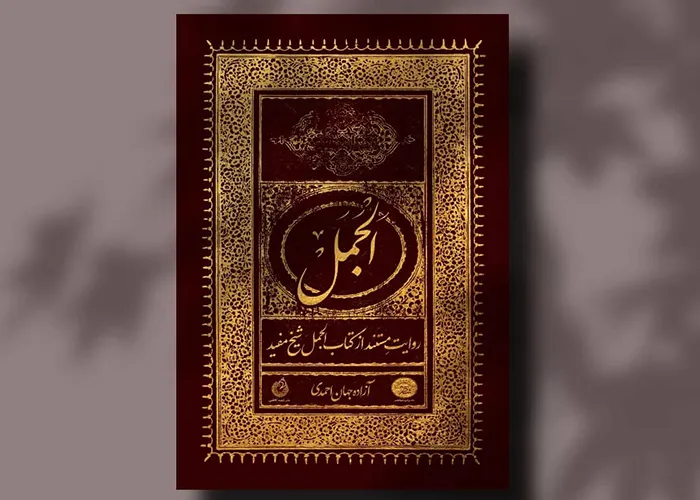Events of the Week – Volume02 Issue09
26th February 2025 – 4th March 2025 (27th Sha’ban – 3rd Holy Month of Ramadhan)
This week is rich with significant events in Islamic history, especially in the lives of the Ahlulbayt (a). These milestones are a source of reflection and inspiration for the Muslim community, offering lessons in faith, sacrifice, and devotion.
4th March 2025 – 3rd Holy Month of Ramadhan
The Death of Marwan ibn al-Hakam (65 AH / 685 CE)
Marwan ibn al-Hakam was a controversial and influential figure in early Islamic history. A staunch supporter of the Banu Umayyah, he played a crucial role in consolidating their rule after the chaos that followed the martyrdom of Imam al-Ḥusayn (a) in 61 AH (680 CE). Marwan belonged to the powerful Umayyad clan of Quraysh and was a cousin of Caliph Uthman ibn Affan. His political career began during Uthman’s caliphate, serving as a close advisor, which led to accusations of nepotism and favoritism. This association made him a divisive figure, particularly among the supporters of the Ahlul Bayt (a).
Following the assassination of Uthman and the subsequent conflicts of the First Fitna, Marwan continued to support the Umayyad cause. He played a key role in the Battle of the Camel (656 CE), siding with Aisha, Talha, and Zubayr against Imam Ali (a), though he later pledged allegiance to Mu‘awiyah I. After the death of Mu‘awiyah II in 64 AH (684 CE), the Umayyad rule was in disarray, with Abdullah ibn al-Zubayr emerging as a serious contender for power. The Umayyads in Syria, seeking to regain control, chose Marwan as their leader, making him the fourth Umayyad caliph.
Marwan’s reign, however, was brief and tumultuous. He engaged in conflicts with the supporters of Ibn al-Zubayr and faced opposition within his own ranks. His efforts to reestablish Umayyad dominance were marked by strategic military campaigns and political manoeuvring. Despite ruling for less than a year, his leadership was instrumental in ensuring the continuity of Umayyad rule. His most significant contribution was securing the succession for his son, Abd al-Malik ibn Marwan, who would go on to become one of the most powerful Umayyad caliphs.
Marwan’s legacy remains controversial. While his reign stabilized the Umayyad position, it also marked the beginning of increased persecution against the Ahlul Bayt (a) and their followers. His role in Islamic history is thus seen as both one of political consolidation and as a precursor to the authoritarian policies of later Umayyad rulers.
The Demise of al-Shaykh al-Mufid (413 AH / 1022 CE)
One of the most influential scholars in Shia Islamic history, al-Shaykh al-Mufid (948–1022 CE) was a brilliant theologian, jurist, and thinker whose intellectual contributions helped shape the foundations of Shia thought. Born in Baghdad, a major centre of learning during the Abbasid era, he was immersed in an environment of intense theological debate and scholarly discourse. From a young age, he exhibited remarkable intellectual abilities, mastering various fields of Islamic knowledge, including jurisprudence (fiqh), theology (kalam), and hadith.
Al-Shaykh al-Mufid played a crucial role in systematizing and defending the doctrines of the Shia school of thought. His scholarship was instrumental in clarifying Shia beliefs, particularly in response to challenges from Sunni theologians and Mu‘tazilite thinkers. His engagement in theological debates earned him widespread recognition, and he often participated in scholarly discussions at the Abbasid court. Despite facing opposition from rival schools of thought, he remained steadfast in articulating and defending Shia principles with logic and evidence.
Among his most famous and enduring works is Kitāb al-Irshād, a historical and theological masterpiece that provides a detailed account of the lives of the twelve Imams (a). This book remains a cornerstone of Shia scholarship, offering both historical narratives and theological insights into the divinely guided leadership of the Imams. Another important work, Tashih al-I‘tiqad, critiques and refines the theological positions of earlier scholars, particularly those of Ibn Qulawayh, ensuring greater clarity and coherence in Shia doctrine.
Beyond his own writings, al-Mufid’s impact extended through his students, many of whom became leading scholars in their own right. He was a mentor to al-Sharif al-Murtada and al-Shaykh al-Tusi, both of whom carried forward his intellectual legacy and further enriched Shia scholarship. His contributions ensured the preservation and expansion of Islamic knowledge, solidifying the rational and legal foundations of the Shia tradition.
Al-Shaykh al-Mufid’s legacy continues to be revered in Islamic history. His works remain essential reading for scholars and students, and his intellectual rigor serves as a model of scholarly excellence, theological depth, and unwavering commitment to truth.
editor's pick
news via inbox
Subscribe to the newsletter.




